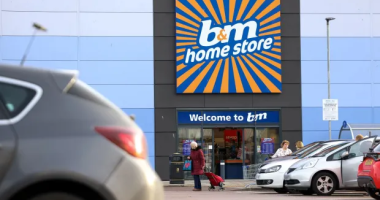OVER a million homeowners are set to see repayments rise by hundreds of pounds this year.
Rising interest rates mean many will face higher bills next time they come to remortgage, adding a further squeeze to people’s finances.
Around 80% of people with a mortgage are locked into fixed deals right now, protecting them from rate rises.
But 1.3million of them are due to end this year according to figures from UK Finance, the Telegraph reports.
They will find mortgage deals pricier than before, adding hundreds or even thousands of pounds a year to repayments depending on the size of the home loan.
The Bank of England has increased the base rate five times in a row – and could hike it for a sixth time in August.


The base rate is used by banks to set rates for customers on borrowing including loans, credit cards and mortgages.
Homeowners with tracker mortgages see their interest and repayments rise immediately when the BoE hikes rates.
Those on standard variable rates are also subject to the central banks’ actions, with many high street lenders passing on the extra costs.
Anyone with a fixed rate sees no immediate rise to payments as they have locked in the rate for a set amount of time.
Most read in Money
But they may find the interest rates next time they are looking for a deal are higher than before.
The BoE started hiking interest rates in December from a historic low of just 0.1%.
Last month it increased the base rate again to 1.25% to tackle soaring inflation.
Of the 1.3million whose fixed rate will come to an end this year, nearly half a million of them locked in when the BoE rate was at its record low.
Fixed rates will now be higher when they come to remortgage – and even higher if they do nothing at all and revert to their lender’s SVR.
Standard rates are usually higher than fixed rates.
The extra costs comes as bills are rising for millions of people, from food and fuel to energy.
Inflation has hit 9.1% and could still rise further, leaving many Brits incomes squeezed.
If you’re coming to the end of a fixed deal, here’s what you can do to avoid forking out more than you need to.
How to get the best mortgage rate
Getting the best rate on your mortgage can depend on the rates available at the time, but there are several ways to land the best deal available for you.
If you’re nearing the end of a fixed deal it’s worth looking now as you can lock in current deals sometimes up to six months before your deal ends.
Many wait until their existing loan has run its course before signing up to a new offer – but that could cost you more if you wait, as rates can rise between now and then.
David Hollingsworth of L&C mortgages previously told The Sun: “A lot of lenders mortgage offers’ are valid for up to six months, so that means you can apply for a deal now, even though you might not be able to complete on that for four or five months.”
L&C data showed the average two-year fixed mortgage rate has trebled since October last year from 0.89% to 2.71%.
In cash terms for a £250,000 mortgage over 25 years, that’s an increase in monthly repayments from £930 to £1,148 – or £2,616 more a year.
Leaving a fixed deal early will usually come with an early exit fee.
Usually the larger the deposit you have the lower the rate you can get.
If you’re remortgaging and your loan to value ratio has changed this could also give you access to better rates than before.
A change to your credit score or a better salary could also help you access better rates.
If you’re on an SVR fixed deals are likely to be cheaper, so it’s worth looking at the deals out there.
The difference between the average two-year fixed mortgage rate and SVR stands at 1.66%, according to Moneyfacts.
To find the best deal use a mortgage comparison tool to see what’s available.
You can also got to a mortgage broker who can compare for you, but you may have to pay for this service.
It could cost a couple of hundred pounds but it might save you thousands on you mortgage overall.


You’ll also need to factor in fees for the mortgage, though some have no fees at all.
Or you can add it on to the cost of the mortgage, but beware that means you’ll pay interest on it and so will cost more in the long term.









